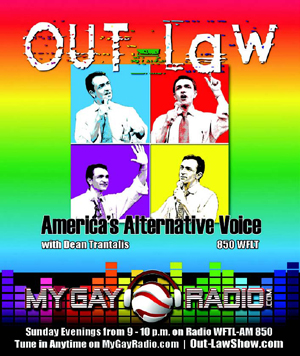By RORY BARBAROSSA
By nearly any yardstick, 2011 was a tumultuous year for LGBT rights. In Florida, the courts upheld the constitutionality of gay adoptions. Nationally, on Sept. 20, the White House announced the final dismantling of the Pentagon’s 20 year-old Don’t Ask, Don’t Tell (DADT) policy, to the applause and dismay of Americans of virtually all political stripes. The point was driven home in November with the “kiss seen ‘round the world” between U.S. Navy Petty Officer 2nd Class Marissa Gaeta and Petty Officer 3rd Class Citalic Snell.
Also last year, as Proposition 8 opponents and supporters in California take their collective legal and election battles to the next ballot referendum, New York lawmakers, Republicans as well as Democrats, approved marriage equality in the Empire State on June 24.
On the international front, Secretary of State Hillary Rodham Clinton illustrated in clear language that the Obama administration has drastically changed its foreign policy relating to gay rights in a historic speech in Geneva, Switzerland on Dec. 6. Recognizing that homosexuality is still criminal in 76 countries, Clinton urged the world’s leaders to grant LGBT people “the full measure of liberty, the full experience of dignity, and the full benefits of humanity.”
Echoing Obama’s shift and Clinton’s injunctions, the UN Human Rights Council for the first time in history passed a resolution supporting global LGBT rights, expressing “grave concern at acts of violence and discrimination, in all regions of the world, committed against individuals because of their sexual orientation and gender identity.”
Elsewhere internationally, British Prime Minister David Cameron announced his commitment to a course of “how, not if” in implementing full civil marriage rights for LGBT couples, and to have the legislation in place within the lifetime of the current parliament. In Australia, the governing Labor Party also announced its support for full marriage equality.



